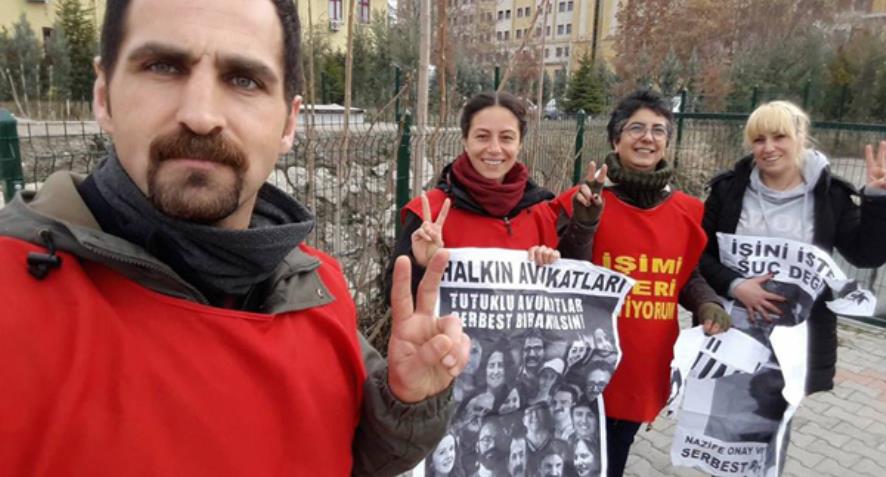
Mehmet Dersulu, a former teacher dismissed from his job by an executive decree after a coup attempt in Turkey in July 2016, was beaten by guards in prison on April 29, his sister Zehra Dersulu told the Gazete Davul news website.
Mehmet Dersulu informed his family in a telephone conversation of the attack in Turkey’s Bolu Prison, where Dersulu has been in pretrial detention.
The guards had beaten Mehmet Dersulu and dragged him by the arms, Zehra Dersulu told Gazete Davul.
Dersulu was one of the former public servants protesting summary dismissals on Ankara’s Yüksel Street. The protestors demanded to be reinstated to their jobs and were detained on August 13, 2020. Dersulu, along with Nazan Bozkurt, Acun Karadağ, Alev Şahin, Mehmet Dersulu, Mahmut Konuk and Armağan Özbaş, was arrested 10 days later.
Dersulu and Şahin have been behind bars nearly for eight months, while the other protestors were released from jail.
A total of 622,646 people have been the subject of investigation and 301,932 have been detained as part of a purge after the coup attempt on July 15, 2016.
More than 130,000 public servants, including 4,156 judges and prosecutors, as well as 20,610 members of the armed forces were summarily removed from their jobs and banned from public service with the claim that they were “member[s] of or have a connection to or are in communication with the structures, organizations, groups or terrorist organizations that are considered by the National Security Council [MGK] to pose a threat to the national security of the state.”
Former public servants were not only fired from their jobs; they were also banned from working again in the public sector and getting a passport. The government also made it difficult for them to work formally in the private sector. Notes were put on the social security database about dismissed public servants to deter potential employers.
Dersulu and other purge victims had been protesting human rights violations in Turkey and the purge of public servants since November 2016. They mainly gathered on Ankara’s Yüksel Street, in front of a human rights monument. The protests first started with two dismissed academics, Nuriye Gülmen and Semih Özakça, demanding their jobs back. Both academics later went on a hunger strike and were arrested on the 76th day of their protest. After months of imprisonment, Gülmen and Özakça were finally released.
The monument became a symbol of resistance and demand for justice after other purge victims and activists joined them. Turkish police have notoriously used excessive force against the protestors on Yüksel Street.
They used pepper gas and TOMA anti-riot vehicles against the protestors who were on Yüksel Street on May 1, 2018 and chanting, “Long live May Day, from Yüksel to Taksim,” “We want our jobs back” and “Long live the Yüksel resistance.”
Perihan Pulat, a 75-year-old woman, sustained injuries during the police intervention including bruises and facial swelling.
Some of Nazan Bozkurt’s hair was ripped from her head during the same protest. Karadağ was beaten and seriously injured by the police during a protest in 2017. Karadag was still recovering from heart surgery at the time.
Source: Stockholm Center for Freedom (SCF)



